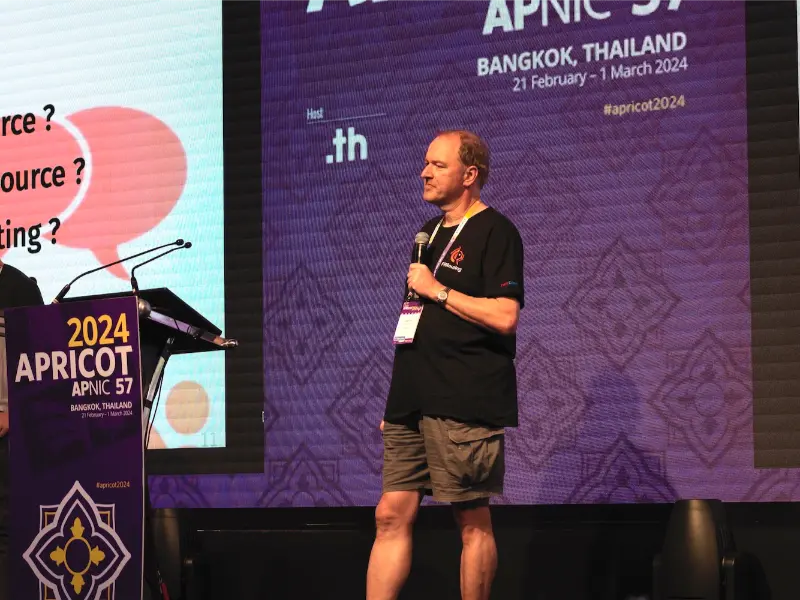- Open Source adoption drivers: Asia’s uptake of open source is driven by cost savings, community support, transparency, and bespoke solutions, allowing businesses to reduce costs, collaborate effectively, ensure security, and tailor solutions to their requirements.
- Empowering local talent: Open source adoption in Asia empowers local engineers, developers, and university students, fostering innovation and positioning the region as a leader in the global tech industry.
- Challenges in Open Source development: Challenges include nurturing a culture of contribution among students, emphasising the importance of documentation, securing financial support, and maintaining community integrity.
- Sustainable future in Open Source: Despite challenges, stakeholders are prioritising enhanced documentation, exploring new funding models, and fostering collaboration to ensure a sustainable future for open source development in Asia.
Martin Winter, a dedicated open-source advocate and co-founder of the Network Device Education Foundation (NetDEF), recently presented at APRICOT 2024 Bangkok to discuss the uptake of open source software across the APAC region. Not enough action is taking place, he stressed during a discussion with Shane Alcock from OpenLI.
With most of the Open Source Contributions and feedback for using coming from America and Europe, only a few countries in APAC are regularly seen in the Open Source Community he claimed.
In recent years, however, a significant shift towards open source software adoption has been observed across Asian countries, marking a strategic move to reduce dependency on proprietary solutions and foster local tech talent. This trend, driven by factors such as cost-effectiveness and flexibility, is reshaping the technology landscape in nations like India, China, Japan, South Korea, and others in the Asia Pacific region.
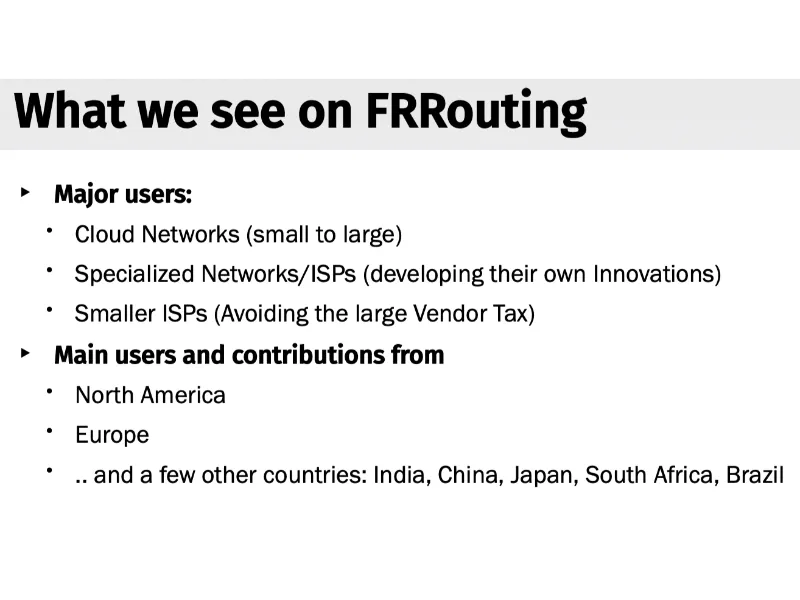
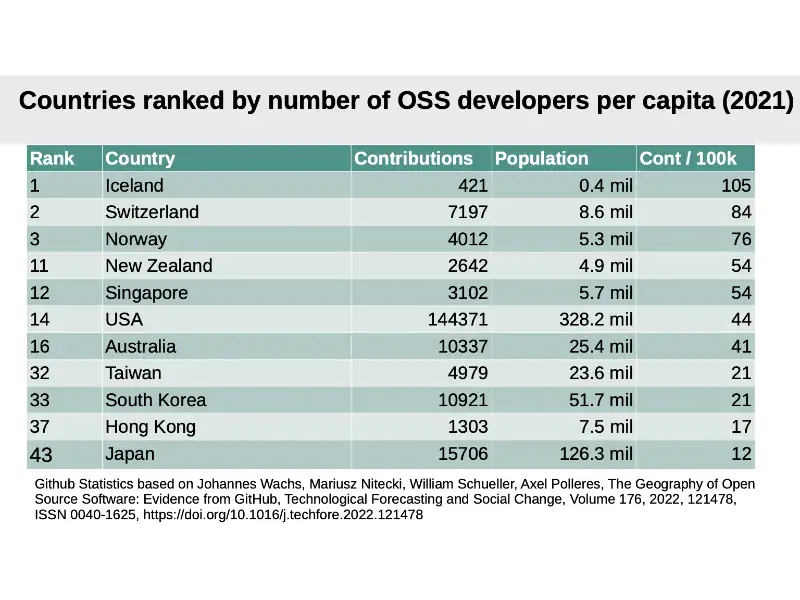
Also read: APRICOT 2024: Uniting the internet’s best engineering and operation minds
Driving factors behind Open Source adoption
The appeal of open source software stems from its capacity to provide reduced expenses, communal backing, higher transparency, and personalized choices tailored to particular requirements. As businesses and institutions in Asia adopt these advantages, experts express optimism about the constructive influence this pattern will exert on the region’s technological environment. Through the utilization of open source solutions, enterprises not only diminish their spending on licenses but also actively participate in worldwide innovation and cooperation within the open source community.
Cost savings and economic appeal
The attractiveness of open source software is rooted in its potential to deliver cost savings to users. By eliminating the need for expensive licensing fees typically associated with proprietary software, open source solutions present an economically appealing alternative for companies and organizations across Asia. This reduction in costs enables businesses to allocate resources more efficiently, potentially leading to greater investment in other areas of operation or expansion.
Community support and collaboration
In addition to cost savings, open source software fosters a sense of community support and collaboration. The global network of developers and contributors within the open source community provides a valuable resource for users seeking assistance, guidance, or expertise. This communal support system not only ensures that users can troubleshoot issues effectively but also encourages knowledge sharing and skill development, ultimately contributing to the overall growth and proficiency of the technology workforce in Asia.
Transparency and security assurance
Security in open source software is ensured through its transparent nature. With open access to the source code, developers and security experts can scrutinize it for vulnerabilities and flaws. This transparency fosters a collaborative environment where individuals from the community can contribute to improving security measures. Moreover, the open source community is quick to respond to security concerns by providing timely patches and updates. By leveraging the collective expertise and vigilance of the community, open source software benefits from a robust security framework that ensures a high level of protection against potential threats. This transparency-driven approach instills confidence in users and promotes the development of secure and reliable software solutions.
Flexibility and customisation
Furthermore, open source software offers a high degree of customisation, allowing organisations to tailor solutions to their specific needs and preferences. This flexibility empowers businesses to adapt and optimise software according to their unique operational requirements, leading to improved efficiency and performance. By leveraging open source solutions, companies in Asia can align their technological capabilities more closely with their strategic objectives, thereby enhancing their competitive position and overall productivity.
Also read: Martin Winter, NetDEF: Open source software should be much more widely used
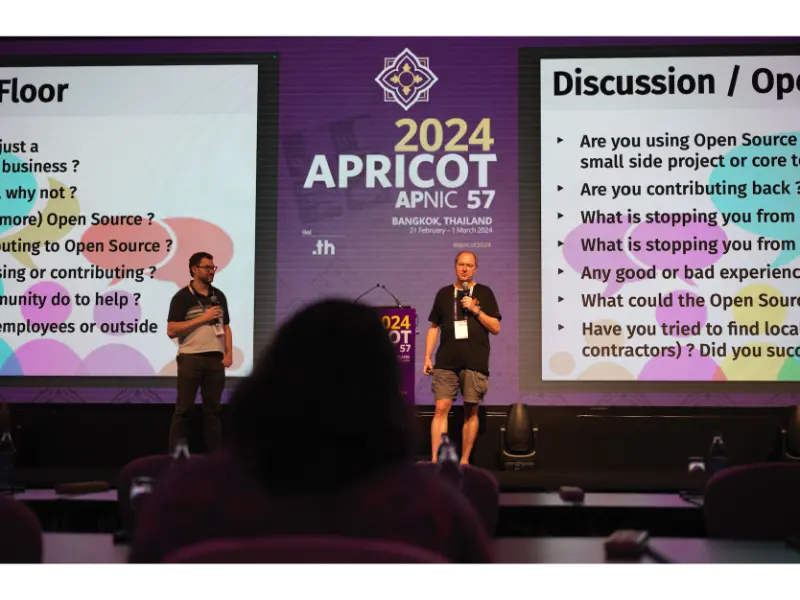
Empowering local talent and fueling innovation
The surge in open source adoption presents a unique opportunity for local engineers and developers as well as university graduates to showcase their skills and actively participate in the development of open source projects. Martin has personally supported a large number of university students worldwide, allowing them to make contributions to the industry. BTW media is currently in touch with some of these students to help them share interesting insights on AI and data science later.
This increased involvement is expected to catalyze growth in the tech sector of Asia Pacific, positioning the region as a key player in the global tech industry. As more companies favor open source solutions, a promising future unfolds, characterized by heightened technology innovation and collaborative endeavors.
Pop quiz
What are the key reasons for the adoption of Open Source?
A. cost savings
B. community support
C. customized choices
D. more transparency
See the answer at the bottom of the article.
Addressing challenges in Open Source development
Following Martin’s captivating presentation, the audience enthusiastically dove into vibrant and enlightening discussions about the challenges facing open source development. Here is a summary of the exciting and informative dialogues that unfolded on the floor.
Nurturing contribution culture among students
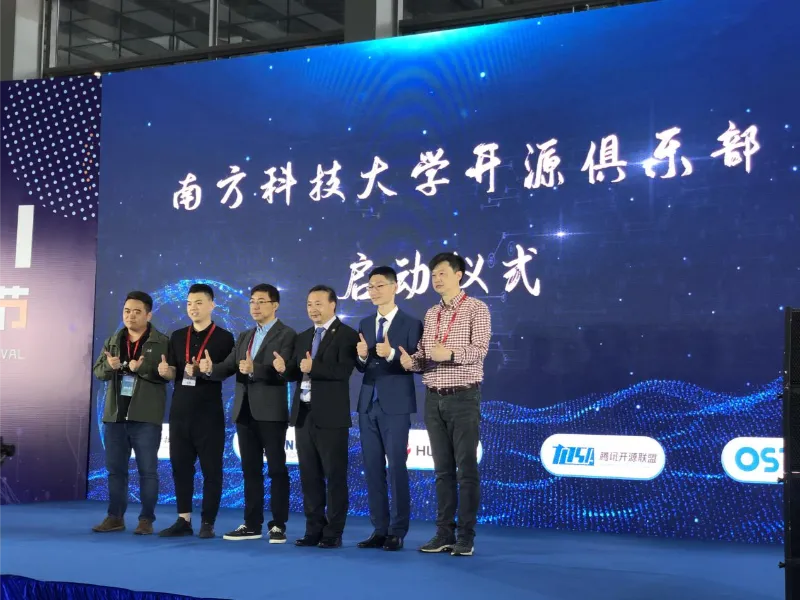
One prevalent challenge identified in recent discussions revolves around the obstacles students encounter when attempting to contribute to open source projects. The intricate nature of community standards and processes often deters aspiring contributors, underscoring the need for universities to play a pivotal role in instilling the value of open source contribution early on. Initiatives like establishing open source clubs can serve as effective platforms for nurturing a culture of engagement among students.
Documentation: The cornerstone of collaboration
Contributions to open source are not limited to just writing code. Philip, who has contributed to a large number of open source projects, emphasizes in the Q&A session the importance of recognising contributions beyond code, such as testing, reviewing, and improving documentation. He discusses the value of encouraging participation from diverse regions and the significance of submitting proposals for talks at open source-related conferences. Philip also highlights the benefits of fostering community interactions and providing clear documentation for users.
Effective documentation stands out as a critical element in attracting and retaining contributors within open source projects. While developers exhibit a willingness to contribute, inadequate or outdated documentation hinders their progress. Project maintainers are urged to prioritize the upkeep of clear and comprehensive documentation, streamlining the onboarding process for new participants and enhancing overall project efficiency.
This underscores the multifaceted nature of contributions to open source projects. It reinforces the idea that open source thrives on diverse forms of participation and collaboration, beyond traditional coding activities.
Sustaining financial support for Open Source projects
Despite the widespread adoption and utility of many open source projects, securing sustainable financial backing remains a persistent challenge. Encouraging businesses and organizations to invest in these initiatives through innovative funding models is imperative for their long-term viability. Collaborative efforts among stakeholders are essential in tackling this financial hurdle and ensuring continued success in the open source realm.
Upholding community integrity and engagement
The presence of bad faith actors exploiting open source communities for personal gain poses a threat to the collaborative spirit and integrity of these projects. Distinguishing genuine contributors from opportunistic individuals requires active community engagement and measures to uphold the values of transparency and authenticity. Safeguarding the ethos of open source development is crucial for fostering a supportive and inclusive environment for all participants.
Paving the way for a sustainable future in Open Source
While challenges persist in the open source landscape, the concerted efforts of stakeholders to address issues related to contribution, funding, and community engagement signal a positive shift towards a more sustainable future. By prioritising enhanced documentation, exploring innovative funding mechanisms, and fostering active collaboration within the community, the open source ecosystem in Asia is poised to thrive and deliver cutting-edge solutions that benefit society at large.
Answer to the quiz: ABCD!

